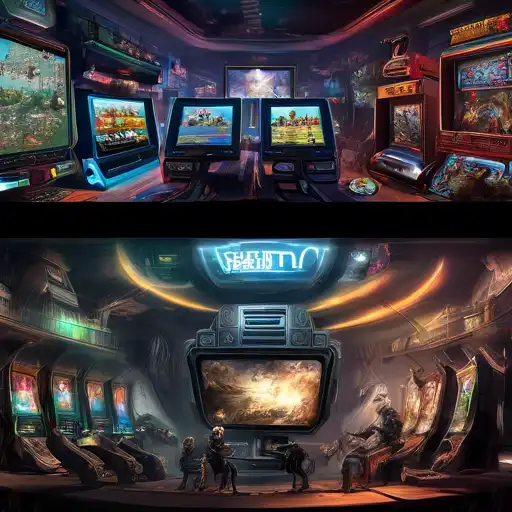The Revolutionary Journey of Gaming Technology in Modern Entertainment
Gaming technology has undergone a remarkable transformation over the years, evolving from simple pixelated screens to immersive virtual realities. This evolution has not only changed the way we play but also how we interact with digital content, making gaming a cornerstone of modern entertainment.
The Early Days of Gaming
The journey began in the 1970s with arcade games like Pong and Space Invaders, which laid the foundation for the gaming industry. These games, though simple by today's standards, were revolutionary at the time, offering a new form of interactive entertainment.
The Rise of Home Consoles
With the introduction of home consoles like the Atari 2600 and later the Nintendo Entertainment System (NES), gaming became more accessible to the masses. This era saw the birth of iconic franchises such as Super Mario Bros. and The Legend of Zelda, which remain popular to this day.
The Digital Revolution
The advent of the internet and digital distribution platforms like Steam and the PlayStation Store has transformed gaming into a global phenomenon. Online multiplayer games and downloadable content (DLC) have created communities of gamers who connect and compete across the globe.
The Future of Gaming
Today, technologies like virtual reality (VR) and augmented reality (AR) are pushing the boundaries of what's possible in gaming. With the development of cloud gaming services, the future promises even more accessibility and innovation, making gaming an integral part of entertainment for generations to come.
Gaming technology continues to evolve, offering new ways to experience stories, connect with others, and challenge ourselves. As we look to the future, one thing is clear: gaming will remain at the forefront of entertainment, shaping how we play, learn, and interact with the world around us.
Why Gaming Technology Matters
Gaming technology is not just about entertainment; it's a driver of innovation in fields like education, healthcare, and social interaction. From educational games that make learning fun to VR simulations used in medical training, the impact of gaming technology extends far beyond the screen.
- Interactive learning tools
- Virtual reality training simulations
- Social connectivity through online gaming
- Advancements in graphics and AI
As gaming technology continues to advance, its role in our lives will only grow, offering new opportunities for entertainment, education, and connection. The evolution of gaming technology is a testament to human creativity and the endless possibilities of digital innovation.
